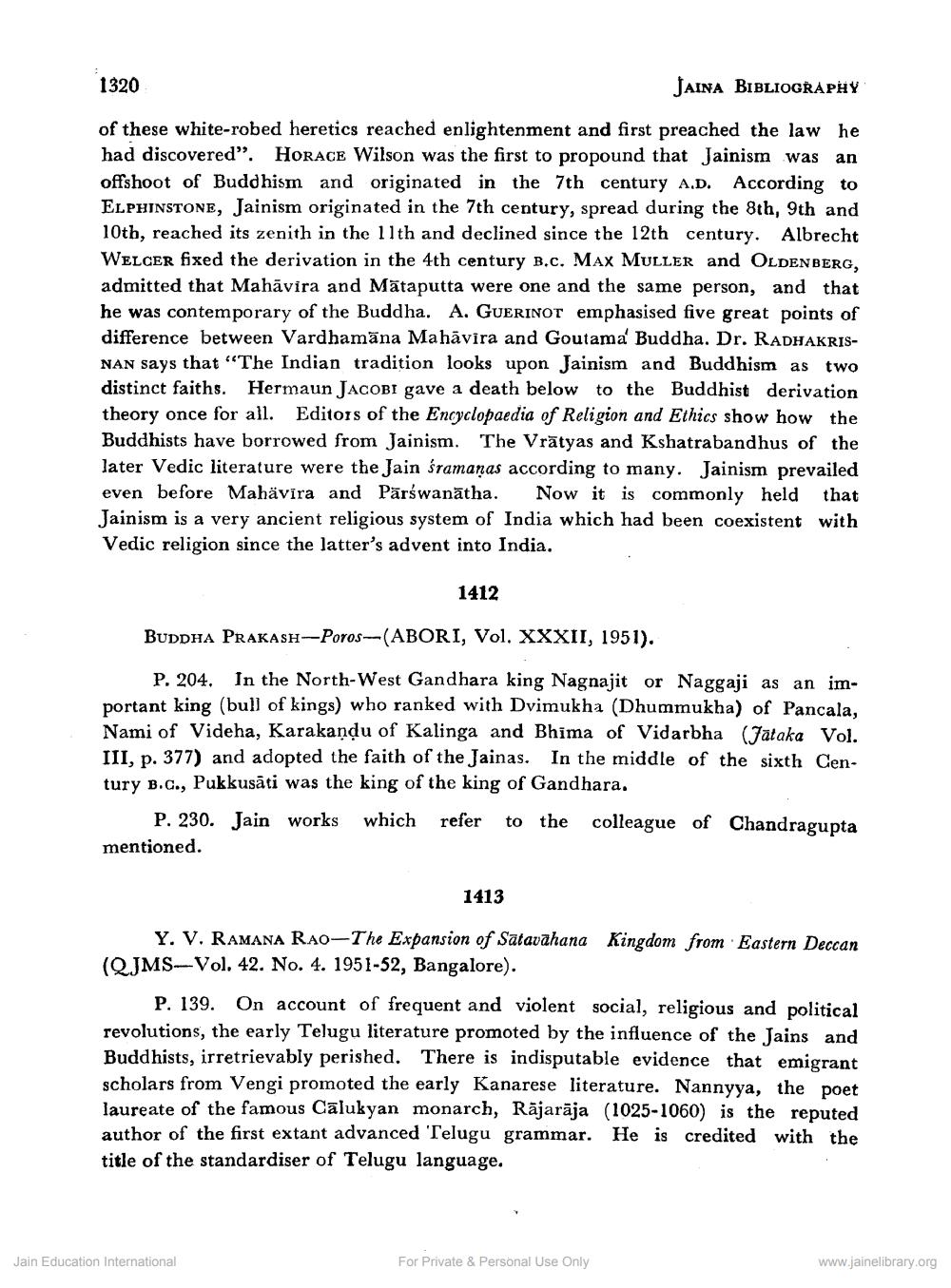________________
1320
JAINA BIBLIOGRAPHY
of these white-robed heretics reached enlightenment and first preached the law he had discovered". HORACE Wilson was the first to propound that Jainism was an offshoot of Buddhism and originated in the 7th century A.D. According to ELPHINSTONE, Jainism originated in the 7th century, spread during the 8th, 9th and 10th, reached its zenith in the 11th and declined since the 12th century. Albrecht WELCER fixed the derivation in the 4th century B.C. MAX MULLER and OLDENBERG, admitted that Mahavira and Mätaputta were one and the same person, and that he was contemporary of the Buddha. A. GUERINOT emphasised five great points of difference between Vardhamana Mahavira and Goutama' Buddha. Dr. RADHAKRISNAN says that "The Indian tradition looks upon Jainism and Buddhism as two distinct faiths. Hermaun JACOBI gave a death below to the Buddhist derivation theory once for all. Editors of the Encyclopaedia of Religion and Ethics show how the Buddhists have borrowed from Jainism. The Vrätyas and Kshatrabandhus of the later Vedic literature were the Jain śramanas according to many. Jainism prevailed even before Mahävira and Pārswanatha. Now it is commonly held that Jainism is a very ancient religious system of India which had been coexistent with Vedic religion since the latter's advent into India.
1412
BUDDHA PRAKASH --Poros--(ABORI, Vol. XXXII, 1951).
P. 204. In the North-West Gandhara king Nagnajitor Naggaji as an important king (bull of kings) who ranked with Dvimukha (Dhummukha) of Pancala, Nami of Videha, Karakandu of Kalinga and Bhima of Vidarbha (Jataka Vol. III, p. 377) and adopted the faith of the Jainas. In the middle of the sixth Century B.C., Pukkusāti was the king of the king of Gandhara.
P. 230. Jain works which refer to the colleague of Chandragupta mentioned.
1413
Y. V. RAMANA RAO-The Expansion of Satavahana Kingdom from Eastern Deccan (QJMS-Vol. 42. No. 4. 1951-52, Bangalore).
P. 139. On account of frequent and violent social, religious and political revolutions, the early Telugu literature promoted by the influence of the Jains and Buddhists, irretrievably perished. There is indisputable evidence that emigrant scholars from Vengi promoted the early Kanarese literature. Nannyya, the poet laureate of the famous Cālukyan monarch, Rājarāja (1025-1060) is the reputed author of the first extant advanced Telugu grammar. He is credited with the title of the standardiser of Telugu language.
Jain Education International
For Private & Personal Use Only
www.jainelibrary.org




